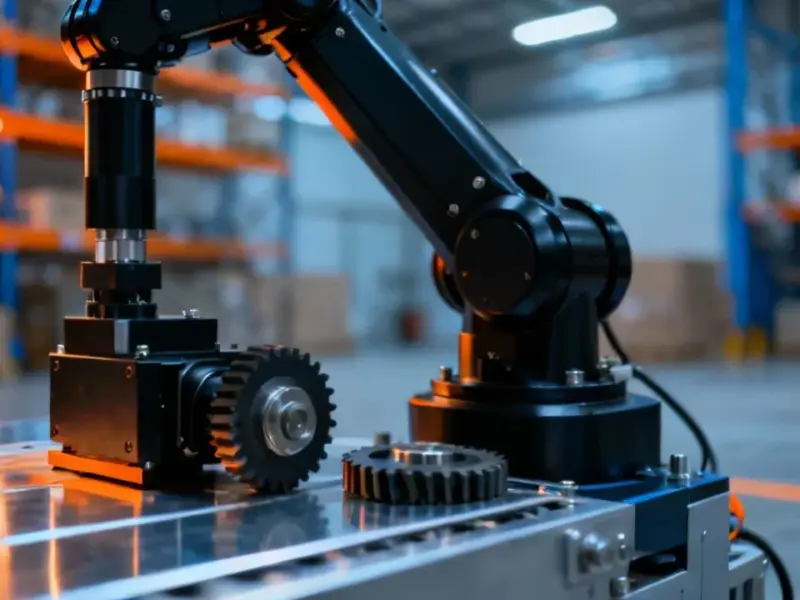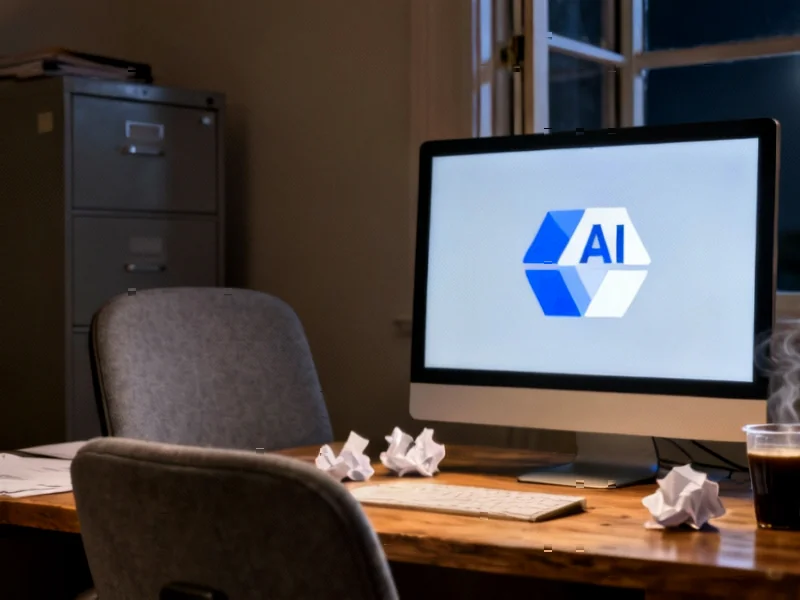According to Futurism, Keith Riegert, the CEO of Ulysses Press, recently told over 1,200 publishing industry representatives at the Sharjah’s Publishers Conference that AI has only two possible futures: either mass unemployment makes everyone’s job obsolete, or a “scaling plateau triggering economic collapse.” He admitted preferring the economic collapse scenario while acknowledging he’s “not very happy that AI is here.” Despite his concerns, his company partnered with OpenAI and now mandates all employees use ChatGPT for at least an hour daily. Riegert demonstrated AI’s capabilities by creating a complete Amazon-ready book in just five minutes, calling the result “terrible” but listing it on Kindle Direct Publishing anyway before deleting it. The context for this massive AI investment shows conservative estimates peg spending from just the largest tech firms at $550 billion by 2026, with 92 percent of US GDP growth now coming from AI.
Brutal honesty
Here’s the thing about Riegert’s assessment: it’s refreshingly honest in an industry that usually serves up optimistic tech hype. Most executives would sugarcoat this stuff, but he basically said “pick your poison” – either we all lose our jobs or the entire economy collapses. And he’s not alone in this thinking. Many economists and investors see complete job automation as the endgame, with whoever controls the AI becoming what amounts to a “god emperor.”
But what’s really striking is the cognitive dissonance. He openly admits he dislikes AI’s arrival, yet his company is diving in headfirst with that OpenAI partnership. It’s the classic “if you can’t beat ’em, join ’em” approach, but with apocalyptic stakes. When even the skeptics feel forced to participate, you know the momentum is unstoppable.
Publishing nightmare
His live demonstration says everything about where we’re headed. Creating a book in five minutes? That’s not innovation – that’s flooding the zone. He mentioned how when Kara Swisher’s biography was announced, AI-generated clones appeared almost immediately. Amazon’s ecosystem is already becoming a nightmare of bot-farmed content, and this CEO seems perfectly willing to contribute to the degradation.
Think about what this means for quality, for authenticity, for actual human creativity. When the barrier to publishing drops to near-zero, we’re looking at an information environment where finding signal in the noise becomes nearly impossible. And the people creating this mess are the same ones warning us about the consequences.
Economic realities
The numbers behind this AI gold rush are absolutely staggering. We’re talking about 92 percent of US GDP growth coming from AI investments. That’s not just significant – that’s the entire economy being reshaped around this technology. When conservative estimates project $550 billion in spending from just the largest firms by 2026, you understand why nobody can afford to sit this out.
But here’s my question: what happens when all this investment expects returns that the actual economy can’t deliver? Riegert’s “scaling plateau” scenario isn’t just theoretical. If AI fails to generate the productivity gains or consumer demand needed to justify these astronomical investments, we could see a collapse that makes the dot-com bust look like a minor correction.
Capitalist contradictions
This entire situation exposes what critics have been saying for years – we can’t properly discuss AI without talking about capitalism. The technology itself is neutral, but the system deploying it demands endless growth and profit maximization. When you combine that drive with technology that could automate huge swaths of work, you get exactly the dystopian scenarios Riegert described.
Look at what’s happening in manufacturing and industrial sectors right now. Companies that supply critical hardware like industrial panel PCs are seeing massive demand as automation accelerates. The infrastructure supporting this AI revolution requires robust, reliable computing hardware that can operate in demanding environments. And the leading suppliers are scrambling to keep up.
Ultimately, Riegert’s warning feels like watching someone pour gasoline everywhere while calmly explaining how the house might burn down. He sees the danger, understands the consequences, but can’t stop participating in the very system creating the threat. That might be the most unsettling part of all – when even the people sounding the alarms feel compelled to fuel the fire.




